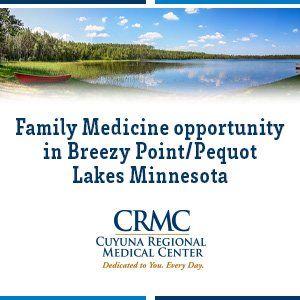n July 1, Minnesota became one of an increasing number of states to ban noncompete covenants in employment agreements (joining states such as California, North Dakota, Illinois).
cover story two
The New Noncompete Agreement Laws
What they mean for physicians
By Jennifer A. Forbes, JD and Benjamin J. Kramer, JD
Almost every physician working for a health system or practice is required as a condition of employment to sign an agreement that prevents the physician from competing after termination.
A typical physician noncompete applies during the term of employment and for twelve months after termination with a geographic restriction based on a radius of 15 to 30 miles from the practice location.
Noncompetes benefit the employer by making it less likely that physicians will leave and by limiting a physician’s ability to take patients upon termination. On the flip side, noncompetes interfere with the ability of physicians to change jobs, find new employment if terminated, and most important to continue to treat their patients after termination.
For decades Minnesota courts have branded noncompetes as restraints on trade and not favored by law; the new law takes this one step farther by banning noncompetes in most circumstances.
So, are noncompete agreements a thing of the past in the state of Minnesota? The answer is yes and no; and the devil is in the details.
The answer is yes as to agreements signed on or after July 1, 2023; but the answer is no as to noncompetes in existence prior to July 1, 2023, or as to noncompetes allowed under one or more of the law’s exceptions.
Minnesota physicians and other providers who sign new agreements on or after July 1, will enjoy greater freedom as their employers will not be able to restrict their ability to practice elsewhere after termination. This will undoubtedly increase the mobility of providers and increase the competition between practices and health systems for new talent.
All is not lost for physician-owned practices and health systems that may similarly benefit from the ability to employ physicians that previously would have been blocked by their noncompetes from working for them.
Non-competes interfere with the ability of a physician to change jobs.
Inside the New Law
Noncompetes Void The law makes void and unenforceable any covenant not to compete entered into on or after July 1. 2023. A covenant not to compete is defined as any agreement that would restrict the employee, after termination of the employment, from performing (1) work for another employer for a specified period of time; (2) work in a specified geographical area; or (3) work for another employer in a capacity that is similar to the employee’s work for the employer that is a party to the agreement.
Definition of employee Notably, the law’s restriction is broad, covering agreements with both employees and independent contractors. Independent contractors are defined under the law as individuals whose compensation is not reported on a W-2, as well as any legal entity (LLC, partnership, corporation etc.) when an employer requires an individual to form such a legal entity for purposes of entering into a contract for services as a condition of receiving compensation under an independent contractor agreement.
Exceptions to the Ban on Noncompetes
Confidentiality and non-disclosure agreements Employers may still ban an employee from leaving with information properly classified and protected as confidential. Nondisclosure, confidentiality and trade secret agreements are not impacted by the new law.
Example: Dr. Z is employed by Health System A on July 1, 2023, and has no noncompete. She subsequently resigns from Health System A to work at a new practice. She downloads her patient lists plus specialized forms she created when employed by Health System A. She assumes that the ban on noncompetes means that she can take and use this information freely. Health System A has policies and procedures protecting against such actions. The new practice uses the patient lists to send out letters to patients of Dr. Z and uses the forms to improve its own forms. Upon reviewing Dr. Z’s computer, Health System A uncovers the downloads. Both the new practice and Dr. Z are sued by Health System A for violation of the Minnesota Uniform Trade Secrets Act, breach of contract and third-party interference with contract. Nothing in the new law banning noncompetes bars Health System A from bringing this lawsuit.
Non-solicitation agreements Similarly, nothing in the new law prohibits an employer from enforcing a non-solicitation agreement. The law excludes a non-solicitation agreement, or agreement restricting the ability to use client or contact lists or solicit customers of the employer. If Health System A included a non-solicitation clause in its agreement with Dr. Z, she is barred from soliciting patients of Health System A regardless of whether she downloaded the patient lists.
Noncompetes during employment Employers may continue to require noncompetes during the term of employment. For example, Dr. Z’s employment agreement with the practice could say that she may not work for any other employer during the term of her employment. The practice could restrict moonlighting at Health System A.
Practice Pointers: When modifying existing employment agreements and forms for use after July 1, 2023, physician practices may wish to avoid a full-scale removal of all noncompete language and use a more tailored approach removing only the limitation on competition for any period after termination.
Noncompetes with sellers of a practice The law also includes an exception for noncompetes entered into upon the sale of a business. Unfortunately, the law does not define the phrase “sale of a business.” Key language includes:
“Notwithstanding paragraph (a), a covenant not to compete is valid and enforceable if: (1) the covenant not to compete is agreed upon during the sale of a business. The person selling the business and the partners, members, or shareholders, and the buyer of the business may agree on a temporary and geographically restricted covenant not to compete that will prohibit the seller of the business from carrying on a similar business within a reasonable geographic area and for a reasonable length of time.”
Post-sale noncompetes are standard in most physician practice transactions, whether the buyer is another practice, a health system or a private equity. A buyer wants assurances that the seller and its providers are not going to compete with the buyer after the sale.
One issue with the sale exclusion is that it is limited to restricting owners, partners, members or shareholders of the seller. It does not cover non-owners or non-shareholder physicians. As a result, a buyer could not obtain any noncompete applicable to non-shareholder physicians post-sale. A practice with a significant number of non-owner physicians may find that buyers are less interested in purchasing the group or will factor possible attrition into the purchase price.
Non-competes interfere with the ability of a physician to change jobs..
Definition of the phrase “sale of a business” An open question is how broadly will courts interpret the phrase sale of a business? For example, could a practice add a noncompete to a shareholder physician’s agreement for repurchase of their shares by the practice? Most groups have new shareholders sign a stock repurchase or buy-sell agreement at the time the physician is first sold such stock. Such an agreement could include noncompete restrictions triggered upon the physician’s sale of stock back to the practice. Would the repurchase of such shares be considered a “sale” of a business? It certainly is a sale of that individual’s ownership in the business. Will it matter whether the shareholder owned a minority or majority share of the stock?
Similarly for private equity deals moving forward, will Minnesota allow noncompete agreements from physician shareholders selling their interests as part of the private equity transaction? Will the structure of a transaction impact whether a court allows a noncompete from the shareholder physicians? For example, will a merger constitute the sale of a business? We assume that it would but there may be room for disagreement.
Post dissolution noncompetes Post dissolution noncompetes are also allowed under the law if the noncompete is agreed upon in anticipation of the dissolution of a business. The law provides:
“The partners, members, or shareholders, upon or in anticipation of a dissolution of a partnership, limited liability company, or corporation may agree that all or any number of the parties will not carry on a similar business within a reasonable geographic area where the business has been transacted.”
What facts will be required to prove that a noncompete is in anticipation of dissolution? For example, could a professional limited liability company (LLC) include in the LLC operating agreement (signed by owners at formation) a clause that provides that upon dissolution the members agree not to compete for a period of 12 months? Is this an agreement signed “in anticipation of dissolution” even though it is signed years in advance? Who has standing to enforce a post dissolution noncompete after the business is dissolved and is no longer in business?
Could a majority of the physician owners as part of a dissolution process force only one of a minority interest to sign a noncompete? By use of the words “all or any number of the parties” the statute anticipates this possibility. In Minnesota, minority shareholders have equitable rights that might mitigate against unfair treatment.
Void noncompetes versus void agreements The law explicitly provides that inclusion of a void and unenforceable noncompete does not impact the overall enforceability of the agreement. This fact may lead attorneys to draft noncompete provisions which stretch the meaning of a sale or anticipated dissolution to obtain a noncompete knowing that the provision itself, if found overly broad, will not void the entire agreement.
Additional Questions Under the New Law Banning Noncompetes
Amendments to an employment agreement The statute applies to any noncompete entered into on or after July 1, 2023. What does entered into mean? Does amending an employment agreement with a pre-existing noncompete result in its being entered into post - July 1, 2023? What if the amendment does not impact the noncompete and deals only with other terms? What if an agreement is assigned as part of a sale of a practice? Does that assignment result in a noncompete being entered into for purposes of the restrictions?
Employer’s use of choice of law provisions to avoid application of Minnesota law Could an employer add a clause to a new agreement that applies Delaware law to limit the application of the new Minnesota law? No, the law expressly prohibits employers from including choice of law or venue provisions that apply a different state’s laws, or that allow litigation outside of Minnesota, in a noncompete agreement with a Minnesota employee or independent contractor.
Impact on Business-to-Business Noncompetes What impact will the law have on business-to-business noncompetes? For example, practices with physician services agreements (PSAs) with health systems typically include noncompete agreements applicable upon termination of the agreement. These PSAs typically require the practice not to compete post termination and to obtain noncompetes with its physicians for the benefit of the health system.
Business-to-business noncompetes are not limited by the law, but the practice will not be able to require a physician hired after July 1, 2023, to comply upon such physician’s termination from the group. Modification of PSAs to address this issue will be prudent; spotting this issue in PSAs going forward will also be key.
Enforceability of Existing Noncompete Agreements
One employer two classes of employees Practices or health systems employing physicians will need to consider the law’s impact in creating two classes of physicians. One class will be those with existing noncompetes who cannot compete after their employment ends. The second class will be those entering into noncompetes after July 1, 2023, who cannot be restrained. This could include newly hired physicians as well as physicians whose employment agreements have ended and who execute new agreements.
Example: Physicians A and B are current employees each with a noncompete in place prior to July 1, 2023. Physician C is a new physician joining the group on August 1, 2023. Physician C’s employment agreement cannot restrict Physician C from competing upon termination. Physicians A and B can be restrained from competing upon termination.
Now assume that physician A is elected as a shareholder of the practice. A new shareholder employment agreement is entered into as of September 1, 2023, that which may not contain a noncompete for the post-employment period.
In both scenarios the practice must come to terms with having some physicians who are restricted and others who are not.
Proving a legitimate business interest given two classes Nothing in the new law changes existing case law. Minnesota Courts have always disfavored noncompetes; and key elements must be proven as a condition to enforcement. The noncompete must be: (1) supported by independent consideration, (2) reasonably necessary to protect a legitimate business interest of the employer; and (3) no broader than necessary (in scope, duration and geographic territory) to protect such interest.
This raises the question as to whether a court might refuse to enforce a pre-July 1, 2023, noncompete for an employer with these two classes of employees on the grounds that the employer can no longer prove that the noncompete protects a legitimate business interest. Even if an employer is successful in defending such claim today, it is unclear whether that same employer will be able to do so in the future when the percentage of physicians subject to noncompetes is far less than those without one.
Future Impact of the Minnesota Law Banning Employment Noncompetes
The impact of the Minnesota law will be seen over the coming years as new employment and independent contractor and physician services agreements are formalized. It is anticipated that employers will look to implement carefully tailored nonsolicitation and nondisclosure provisions in an effort to counteract some of the impacts of the law. As these new changes take effect, physicians and employers should be mindful to review their existing employment, independent contractor agreements and personal services agreements and to take into account the effects of the new law as to what is permitted and prohibited in this changing landscape.
Jennifer A. Forbes, JD, is a partner in the Minneapolis office of Kutak Rock LLP. She has over 30 years of experience representing health care providers and other businesses.
Benjamin J. Kramer, JD, is an associate attorney in the Minneapolis office of Kutak Rock LLP working with its corporate and health care clients.
MORE STORIES IN THIS ISSUE
cover story one
Navigating Drug Shortages: Preparedness and patient advocacy
By David J. Margraf, PharmD, PhD and Stephen W. Schondelmeyer, PharmD, PhD
cover story two
The New Noncompete Agreement Laws: What they mean for physicians
By Jennifer A. Forbes, JD and Benjamin J. Kramer, JD



















